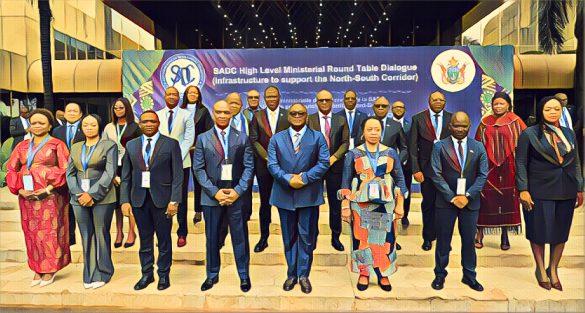KEY POINTS
- Cross-border conservation strategies improve regional unity and environmental protection.
- Local communities must be the primary beneficiaries of conservation initiatives.
- SADC leaders support stronger anti-poaching cooperation and shared responsibility.
During the SADC TFCA Summit, President Emmerson Mnangagwa called on Southern African countries to improve knowledge-sharing and cross-border collaboration in ecosystem management.
Regional leaders unite to strengthen ecosystem conservation strategies
At the conclusion of the Transfrontier Conservation Areas (TFCAs) Summit, Mnangagwa, the current chairperson of SADC, commended the region’s coordinated conservation strategy.
He praised the TFCAs’ 25-year history, calling it evidence of solidarity, resiliency, and dedication to sustainable development.
“We celebrate a legacy of shared conservation responsibility from the beginning of the Kgalagadi Transfrontier Park to today’s regional ecosystem network,” he stated.
Transboundary ecosystems promote equitable growth, regional peace, and a culture of ownership over the management of natural resources, Mnangagwa emphasized.
A significant turning point in the region’s conservation efforts was reached in 2025 when the summit fell on the 25th anniversary of the TFCA program.
In the midst of growing concerns from population expansion, climate change, and escalating human-wildlife conflict throughout Southern Africa, leaders and experts convened.
President Mnangagwa urged policy harmonization and multi-sectoral cooperation to address environmental issues through coordinated regional approaches.
By acknowledging communities as co-creators and direct recipients of natural resources, he emphasized placing them at the core of conservation.
“Communities become essential to ecosystem protection and sustainability when they directly benefit,” Mnangagwa stated, calling for funding for grassroots projects.
Along with highlighting the renowned “Big Five” of the area, he emphasized the pressing need to bolster law enforcement and anti-poaching initiatives in the region.
Cross-border conservation strategies boost law enforcement and integration
According to Mnangagwa, the summit reaffirmed the significance of the SADC Law Enforcement and Anti-Poaching Strategy in safeguarding our common animal heritage.
In order to create an integrated and successful SADC future, he urged transformational leadership and measurable cross-border results.
“Let’s maintain this momentum as we head back home to create a modernized and united SADC region based on local realities,” he stated.
According to Zbc, he urged leaders to support the inclusivity, solidarity, sustainability, and sovereignty values of the SADC TFCA Program 2023–2033.
As Africa Day drew near, President Mnangagwa issued a call to action that matched the objectives of the meeting with the continent’s overarching development agenda.
At the end of the week-long SADC TFCA Conference, best practices were shared, progress was reviewed, and future conservation governance methods were examined.
In his closing remarks, Mnangagwa reaffirmed Africa’s common goals of sustainable development based on environmental stewardship, unity, and sovereignty.


